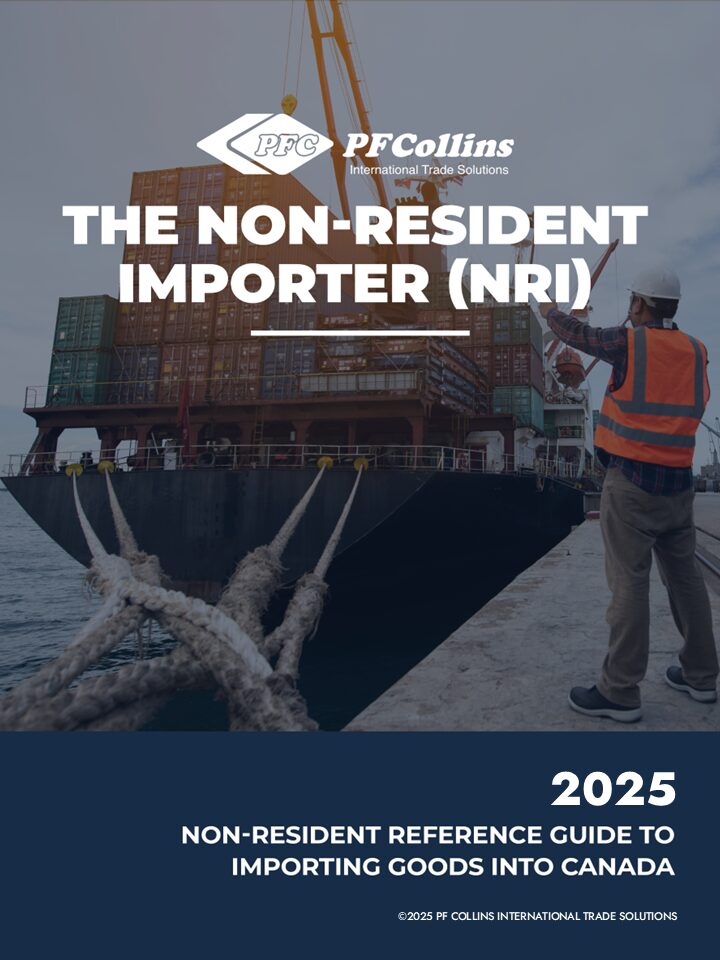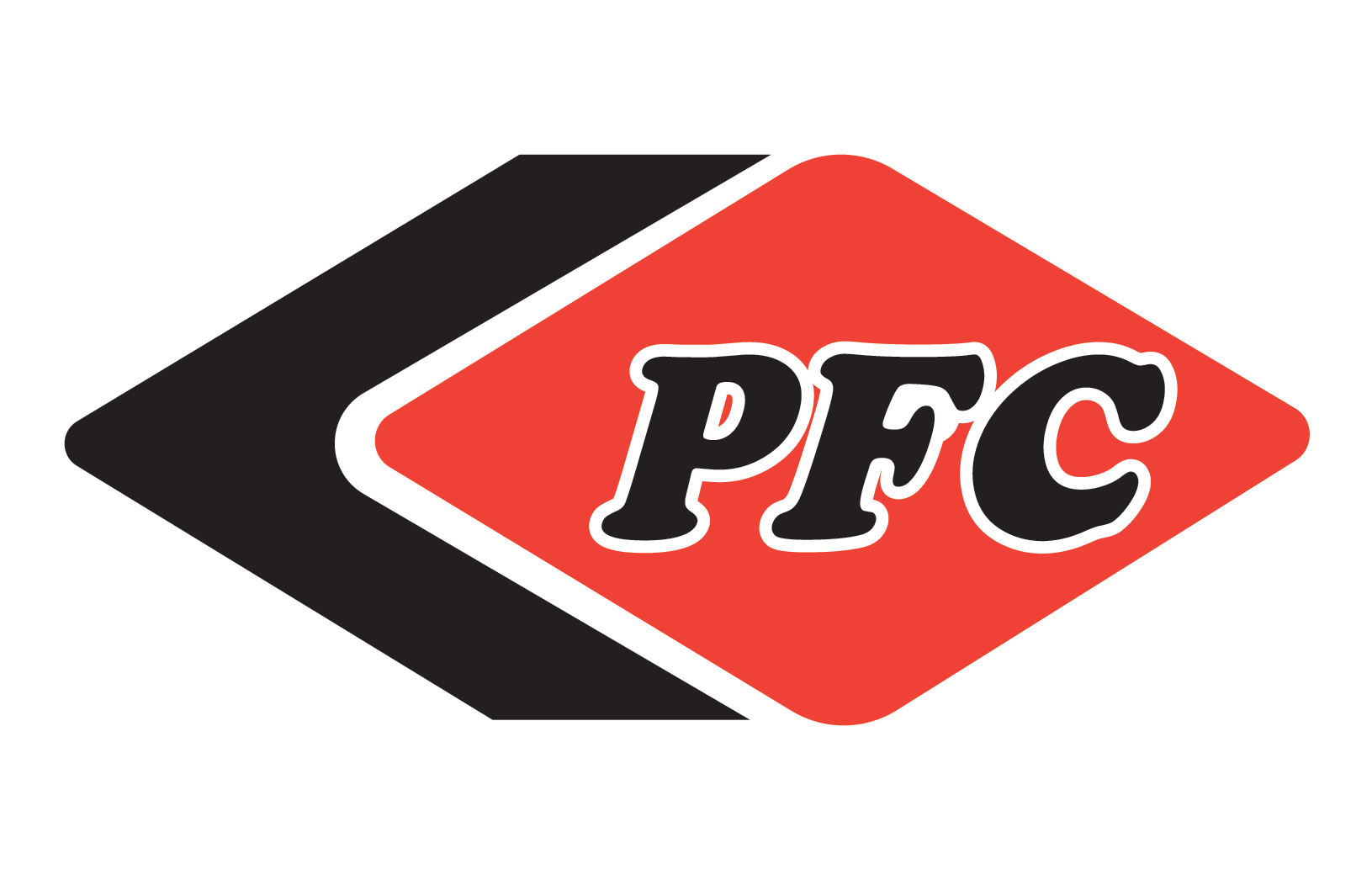The Non-Resident (NRI) Importer Program
A Non-Resident Importer (NRI) is a business based outside of Canada, who does not have a physical presence in Canada, but imports goods into Canada as the Importer of Record.
The Non-Resident Importer (NRI) Program is an initiative of the Canada Border Services Agency (CBSA) that allows international exporters to sell products to Canadian customers directly on a delivered-price basis, without the need for a physical presence in Canada.
Registering as an NRI offers many benefits, including the following:
- Better control over your supply chain
- An increased ability to compete in the Canadian marketplace
- Opportunities to provide better service to Canadian customers
Below we summarize the benefits of becoming a Non-Resident Importer, your responsibilities, and how to register to the NRI Program. For your convenience, we have also created a comprehensive NRI Guide available to download

We offer a Non-Resident Importer Registration Service for those ready to obtain a Business Number, register to CARM and authorize books & records, as well as a Non-Resident Importer Record-Keeping Service for existing clients of PF Collins to maintain important import documents.
Who is a Non-Resident Importer?
A Non-Resident Importer (NRI) is a business based outside of Canada. They do not have a physical presence in Canada but imports goods into Canada under their own name. By registering as an Non-Resident Importer, your company becomes the Importer of Record into Canada.
Becoming the Importer of Record offers many benefits. For instance, the Importer of Record can include all costs of shipping and customs into one price to the customer. The sale resembles a domestic transaction for your Canadian customer, making your product easier to purchase.
However, the risk of becoming the Importer of Record is that you are responsible for complying with the many rules and regulations associated with importing goods into Canada under the Customs Act and Customs Tariff Act.
What are the Benefits of Becoming an NRI?
Reduced Costs
Non-Resident Importers do not need a physical establishment in Canada to sell to Canadian consumers. As a result, operating and overhead expenses associated with infrastructure, employees, warehousing, and distribution are reduced.
Being an NRI also contributes to savings within your supply chain. As both the exporter in your own country and the importer in Canada you are better able to estimate and control shipping and import-related costs. You are also able to consolidate shipments, further reducing these costs.
Supply Chain Control
As both the exporter and the importer, you control the shipping process. This allows you to manage the movement of your goods and potential bottlenecks in the supply chain. Becoming an NRI also allows you to create consistency in your import processes, reducing delays at the border and delivery times to customers.
Accessibility for Customers
NRIs can offer direct delivery to Canadian customers, removing the administrative costs and “hidden fees” often associated with buying products internationally.
Becoming the Importer of Record in Canada allows you to sell your products to customers on a Delivered Duty Paid (DDP) basis (Incoterms 2020), meaning you pay all the costs of delivering the goods door-to-door to your customer. As a result, you control the shipment tracking and your customer only pays the final online or invoice price.
Competitive in the Canadian Marketplace
Reduced costs and easier access for Canadian consumers allows you to compete more effectively and increase your sales and market share in Canada. As a Non-Resident Importer, your sales resemble domestic transactions to Canadian customers – similar to purchasing the products from a Canadian company.
What are the Responsibilities of an NRI?
The biggest risk of becoming a Non-Resident Importer is the responsibility for compliance with the many customs laws and regulations. As the Importer of Record, you are liable for submitting accurate and complete information to the CBSA, paying the applicable duty and taxes, and maintaining records.
Failure to submit the required information and payments may result in fines and penalties under the Administrative Monetary Penalty System (AMPS), confiscation of goods, or being prohibited from future importations.
1. Submitting Correct Information
Goods imported into Canada require specific information for clearance by CBSA at the border, including the following:
- Correct tariff classification for the imported product
- A Canada Customs Invoice (CCI) or commercial invoice detailing the same information as a CCI
- A Certificate of Origin to apply preferential tariff treatment (e.g. CUSMA, CETA, etc.)
- Additional information/documents for the imported product (e.g. import permits)
2. Paying Duties & Taxes as a Non-Resident Importer
3. Maintaining Records as an NRI
Companies or individuals importing or exporting to/from Canada must maintain accurate records for 6 years plus the current year.
Under authorization from the CBSA, a Non-Resident Importer may designate a Customs Broker to prepare, submit, and maintain all shipment-related documentation and records. However, they must submit a request in writing to the CBSA for approval. In addition, NRIs may request authorization to maintain records outside of Canada by submitting a letter of undertaking to the CBSA.
How to Become a Non-Resident Importer in Canada
1. Apply for a Canadian Business Number (BN)
To become a Non-Resident Importer you must first obtain a Business Number (BN) from the Canada Revenue Agency (CRA) prior to importing into Canada. The Business Number is a unique 15-digit number companies in Canada use to transact with government agencies.
You will also need an import/export account. Import/export account numbers include your Business Number, plus the two-letter identifier ‘RM’ (e.g. 123456789RM0001). Your import/export account number is submitted to CBSA on customs clearance documents and are only used when importing or exporting.
To register for a Business Number, or add an import/export account to an existing Business Number, contact the CRA’s Business Window at 1-800-959-5525, or register online using the Business Registration Online (BRO) service.
2. Register as an NRI with the CBSA
Non-Resident Importers must register with the CBSA. When doing so, they must advise of the location in which records will be kept. To maintain records outside of Canada, NRIs must submit a letter of undertaking to the CBSA for approval.
2. Register to CARM
To import goods into Canada, NRIs are also required to register to and make duty/tax payments through the CARM Client Portal. As of May 2022, all importers must complete the following:
- Register to the CARM Client Portal
- Post financial security in the form of a surety (or import) bond to participate in the Release Prior to Payment (RPP) program

For more information, we offer a full line of
CARM Registration services to help you get started
Information & Resources
To further clarify and assist with registration and use of the CERS portal, CBSA has provided several resources:
- General Agency Agreement (To appoint PF Collins as your Customs Broker)
- CARM Information
We’re Here to Help!
The simplest way to register for the Non-Resident Importer Program is through a Customs Broker (that’s us!). By completing a General Agency Agreement, we can assist with the NRI registration and guide you through all aspects of importing to Canada. We can also arrange transportation services for your imports from the U.S. or international shipping point to final destination in Canada.
If you need assistance in registering as a Non-Resident Importer or would like more information, please contact us at import@pfcollins.com. We offer a full range of international trade and logistics services to assist with all your importing and exporting needs.







